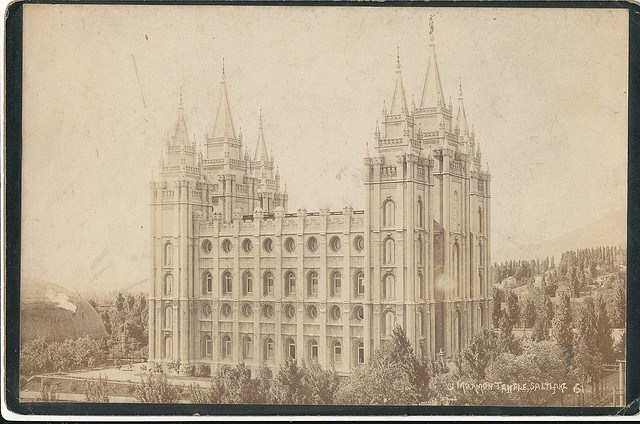
Romney’s Mormonism No Barrier to Presidency and Elicits Little Interest From American Voter
Democracy, elections and voting at Democracy Chronicles
New Poll Finds Little Voter Discomfort with Romney’s Mormon Religion
Washington, D.C. – Most voters continue to say it is important for a president to have strong religious beliefs. But voters have limited awareness of the religious faiths of both Mitt Romney and Barack Obama. And there is little evidence to suggest that concerns about the candidates’ respective faiths will have a meaningful impact in the fall elections.
The latest national survey by the Pew Research Center’s Forum on Religion & Public Life and the Pew Research Center for the People & the Press, conducted June 28-July 9, 2012 among 2,973 adults, including 2,373 registered voters, finds that 60% of voters are aware that Romney is Mormon, virtually unchanged from four months ago, during the GOP primaries.
The vast majority of those who are aware of Romney’s faith say it doesn’t concern them. Fully eight-in-ten voters who know Romney is Mormon say they are either comfortable with his faith (60%) or that it doesn’t matter to them (21%).
The new survey on religion and politics also finds that nearly four years into his presidency the view that Barack Obama is Muslim persists. Currently, 17% of registered voters say that Obama is Muslim; 49% say he is Christian, while 31% say they do not know Obama’s religion. The percentage of voters identifying Obama’s religion as Christian has increased since August 2010, from 38% to 49%, while there has been little change in the percentage saying he is Muslim (19% then, 17% today). Still, fewer say Obama is Christian – and more say he is Muslim – than did so in October 2008, near the end of the last presidential campaign. The increase since 2008 is particularly concentrated among conservative Republicans, about a third of whom (34%) describe the president as a Muslim.
Overall, 45% of voters say they are comfortable with Obama’s religion, while 19% are uncomfortable. Among those who say Obama is Christian, 82% are comfortable with Obama’s religious beliefs. Among those who describe him as a Muslim, just 26% are comfortable with his beliefs.
Among the key findings of the new survey:
Romney’s Religion Not Costing Him Support. Overwhelming majorities of Republican and Republican-leaning voters who know Romney is Mormon support him, whether they are comfortable with his religion or not. However, Romney supporters who are uncomfortable with his Mormonism are less enthusiastic about his candidacy than those who are not bothered by his faith.
More Polarized Views of Obama’s Religion. Discomfort with Obama’s religion is predominantly concentrated among those who say he is Muslim. And there is a much stronger partisan component in views of Obama’s religion than Romney’s. More than a third (36%) of Republican and Republican leaning registered voters say they are uncomfortable with Obama’s religion; just 16% of Democratic voters say they are uncomfortable with Romney’s religion.
Most See Religion’s Influence Declining. Two-thirds of Americans (66%) say religion as a whole is losing its influence on American life. That is little changed from 2010, but among the highest percentages saying religion is losing its influence since the question was first asked in a Gallup poll in 1957. A small but growing share of Americans say it is good that religion’s influence is declining: Currently, 12% say this, up from 6% in 2006.
Liberals, Conservative Christians and Religion in Society. More Americans (65%) say liberals have gone too far in trying to keep religion out of the schools and the government than say that conservative Christians have gone too far in trying to impose their religious values on the country (48%). About a quarter of Americans (27%) say both sides have gone too far when it comes to religion – liberals in trying to keep it out of schools and government, and conservative Christians in trying to impose religious values.
The full report, including slideshow galleries highlighting key findings, is available on the Pew Forum’s website.
###
The Pew Research Center’s Forum on Religion & Public Life conducts surveys, demographic analyses and other social science research on important aspects of religion and public life in the U.S. and around the world. As part of the Washington-based Pew Research Center, a nonpartisan, non-advocacy organization, the Pew Forum does not take positions on policy debates or any of the issues it covers.
Twitter: @pewforum
Facebook: facebook.com/pewforum
Leave a Reply